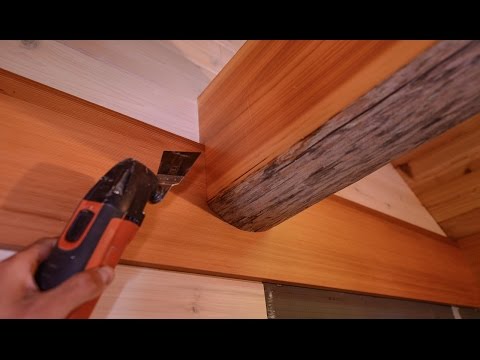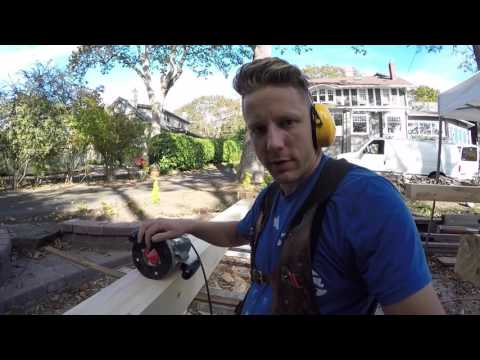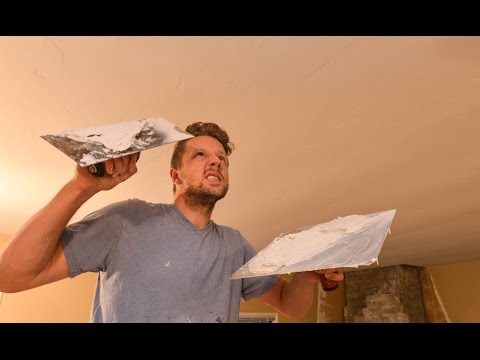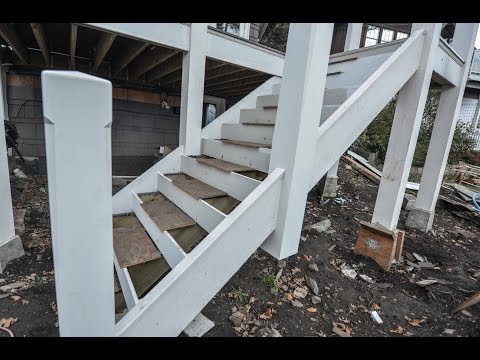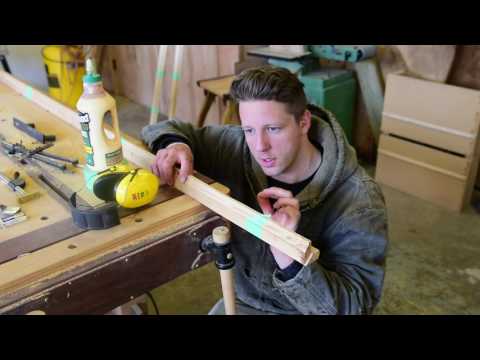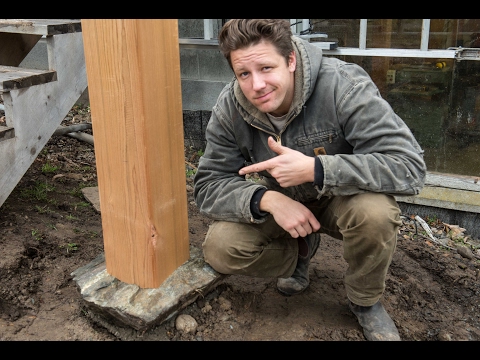A benchtop jig for flattening rough sawn slabs with a router bit. Sweet tip
A logical Step 2 to the Step 1 video a couple of weeks back about Turning a Log into Lumber with an Alaska Chainsaw Mill with David Groth.
Here, Samurai Carpenter smooths that log into the beginnings of a tabletop ...
OFFICIAL TRANSCRIPT:
Today, we’re going to be building a router sled-thingy, I don’t know what the technical term is, but basically it is a box, that’s like a long trough, the router sits in it and the blade protrudes out the bottom of the box.
And you basically run it on two long straight edges, and you use it for flattening out wide slabs of anything too wide to fit in your planer.
The sled will move along an inch at a time; it is slow, but you get a deadly flat surface when you’re finished.
I’ve got a couple of live-edge table tops that I’m going to be building coming up here, and I’m getting them milled up next week. They’re basically 48-inch wide slabs of Elm that we brought down from a yard not far from here. Eventually I’m going to be building some beautiful furniture out of it, so I figured I might as well get myself a router sled built up so that I can flatten these tops once they’re dried and ready to go.
Alright, I’ve got some strips of MDF here—I use MDF because, it’s a bunch of scraps I had laying around the shop and I wasn’t going to go buy new material.
For my two straight edges, I’ve got two six inch strips. I’m going to glue them together, pin them together, and they’re done.
And then for my sled, I’m going to cut a 1-1/8 inch slot (because that’s the width of my bearing guide) in the center of the bottom piece.
Once that piece is cut, I’ll screw it on to my sidewalls, and then put on the ends, and a few more finishing touches, and try it out.
OK, I’ve assembled the two straight edges, the box is built, the router is moving smoothly, nice and snug between the two sidewalls.
Now, I’m going to fasten the two straight edges to mu workbench, then I’m going to set my live edge slab on here, get it all plumbed and leveled up and set in place, then I’ll set my sled on top and I’ll show you how this thing works.
This is a first for me, I’ve seen it in Fine Woodworking magazine years ago and I thought “That’s a pretty sweet idea, I’m gonna do that one day.”
And here I am, so …
I might not be doing this to everybody’s standards, there might be plans or other systems o=ut there that work way better, people might have it set up with pullies or wheels, or might have spent seven or eight days making their router sled.
Good for them.
This has taken me about an hour. I want to be able to take this apart, stack it together, put it up on a shelf because I’m only going to use it maybe once or twice a year, at the most. so I just used available materials and got it done.
So I put these two pieces of wood in here, raised the slab up to the elevation I want, accounted for any twist, then I screwed into the end grain so the slab is supported on these pieces of plywood at each end.
Let’s get routerin’
Wheeew we—alright, made a huge mess, but got it done. this thing is perfectly flat.
That pass took me about fifteen minutes.
Gotta clean up this mess, flip it over and do the other side—another fifteen minutes, so in half an hour, you’ve got yourself a table top that is deadly flat.
This board is eighteen inches wide, won’t fit my planer, which is only fifteen inches wide.
But even when you have a wide enough planer, when you’re putting in a twisted, crowned, cupped, crazy shaped piece of wood a planer doesn’t always get it deadly flat. It might plane the surface, but the surface will still have a twist in it. So this option is far superior in my opinion.
—The Samurai Carpenter is a timber framer and furniture maker in Victoria, BC. See more on his YouTube channel
